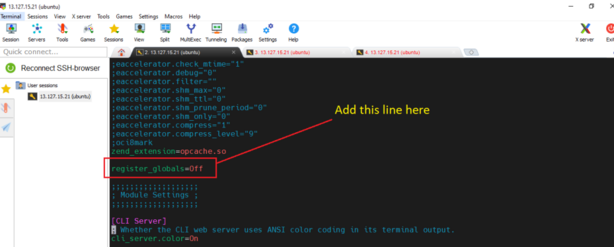disabling the register_globals option in PHP can improve performance. When register_globals is enabled, all variables from the HTTP request are automatically registered as global variables. This can add overhead to PHP applications, as the PHP interpreter has to check whether a variable exists in the global scope before it can be accessed.
Disabling register_globals forces developers to explicitly declare all global variables. This can improve performance by reducing the overhead of registering and deregistering global variables. Additionally, disabling register_globals can help to improve the security of PHP applications by making it more difficult for attackers to exploit vulnerabilities.
Here are some additional benefits of disabling register_globals:
- Reduced memory usage: Registering global variables can increase the memory usage of PHP applications.
- Easier debugging: Disabling register_globals can make it easier to debug PHP applications, as developers will be able to see which variables are actually global.
- Improved compatibility: Disabling register_globals is compatible with newer versions of PHP and other web frameworks.
If you are using an older PHP application that relies on register_globals, you should consider migrating your application to a newer version of PHP and disabling register_globals. This will improve the performance, security, and maintainability of your application.
Example :-
/opt/lampp/etcGo to php.ini and put below code
register_globals=Off
After making the changes, save the file and restart your web server (Apache) for the changes to take effect.
Disabling register_globals is a good security practice, as it can help to prevent attackers from exploiting vulnerabilities. It is also a good performance practice, as it can reduce the overhead of registering and deregistering global variables.